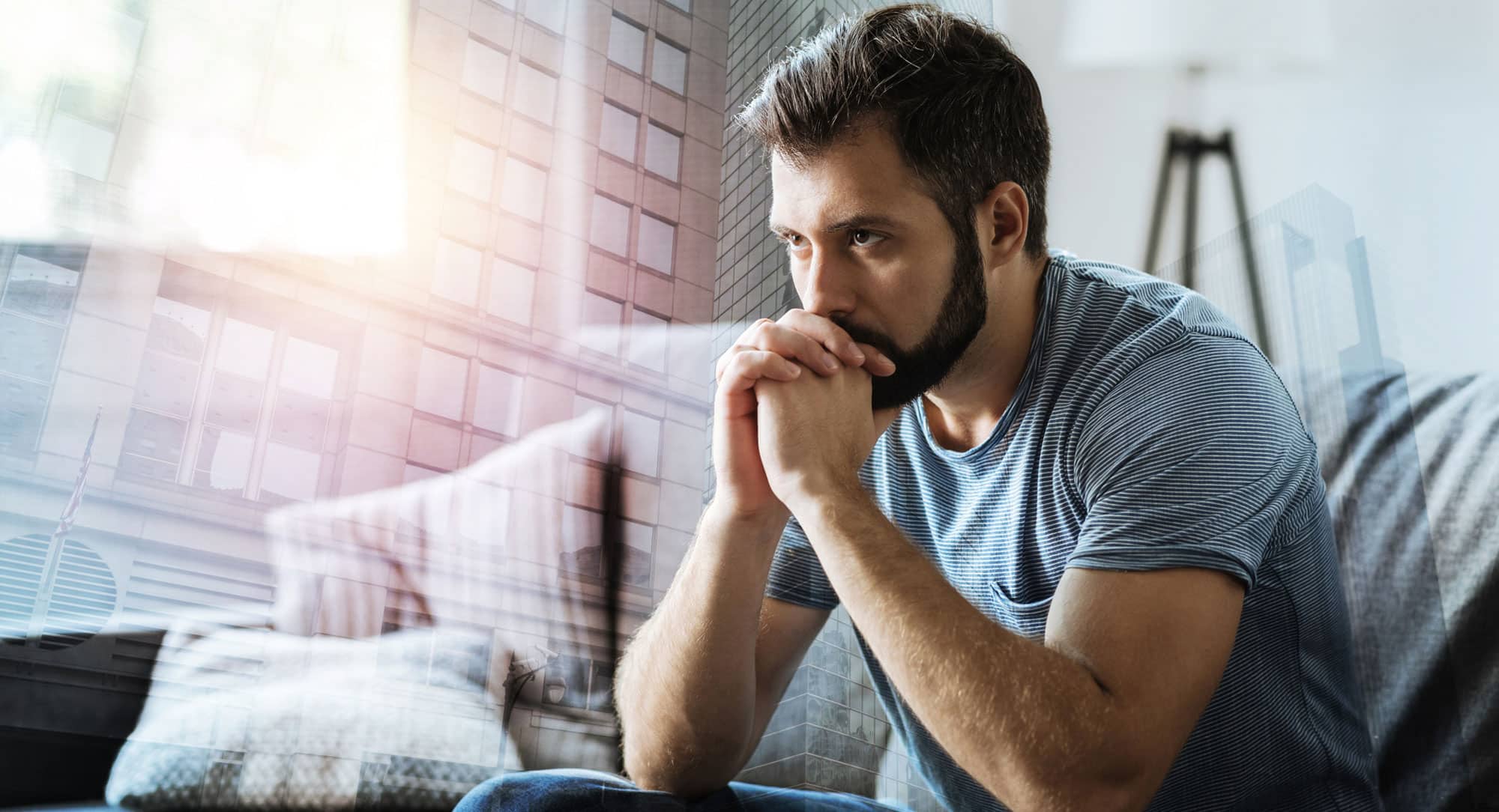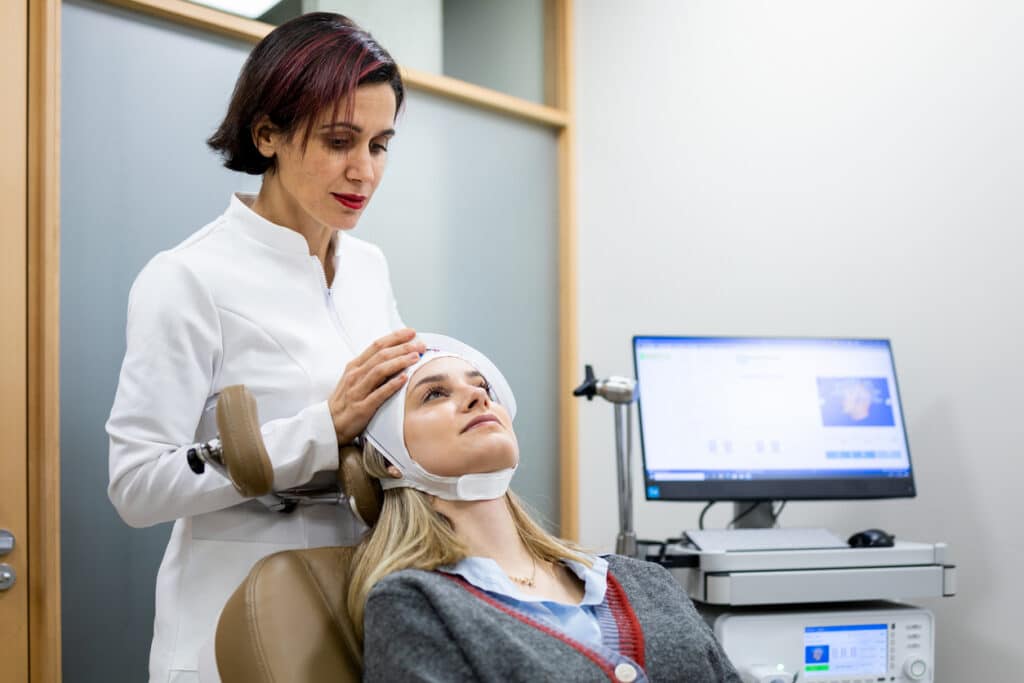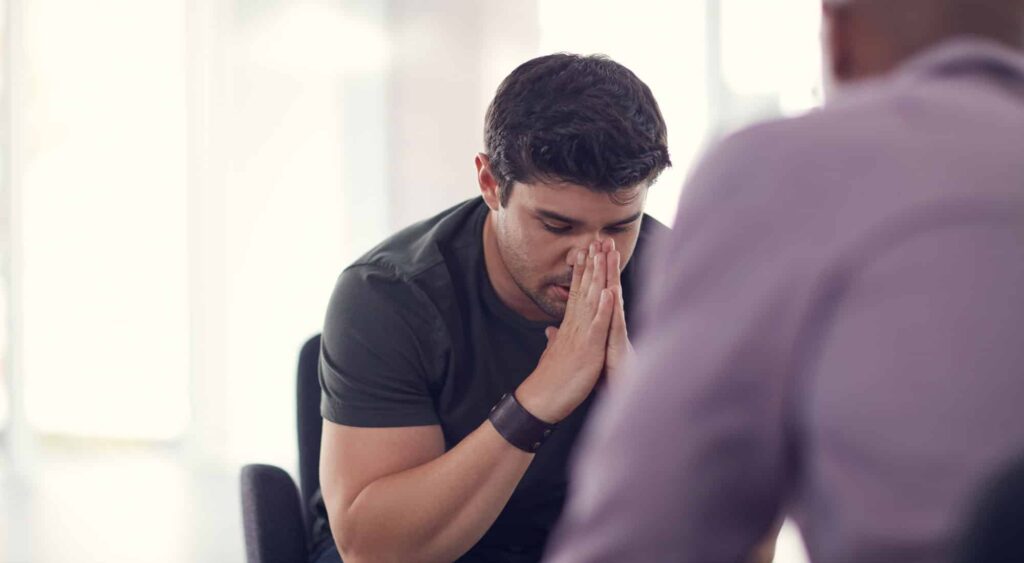Anxiety can feel like a constant hum in the background, or a wave that crashes over you out of nowhere.
For some, it shows up as racing thoughts or a tight chest. For others, it might mean sleepless nights, restlessness, or avoiding situations altogether.
If you’re struggling to cope with anxiety, or if someone you love is, you’re not alone.
Anxiety disorders are the most common mental health condition in the United States. According to the Anxiety & Depression Association of America (ADAA), over 40 million adults live with an anxiety disorder.
But even people without a formal diagnosis can find themselves overwhelmed by everyday stress, uncertainty, or fear. It’s when those feelings start disrupting your daily life that it’s time to take a second look.
Here’s the good news: While anxiety can be overwhelming, it doesn’t have to control your life.
There are simple, effective coping strategies for anxiety that can help you feel more grounded, calm, and capable
If you’re ready to feel more like yourself again, here are several powerful anxiety coping mechanisms to get you started.
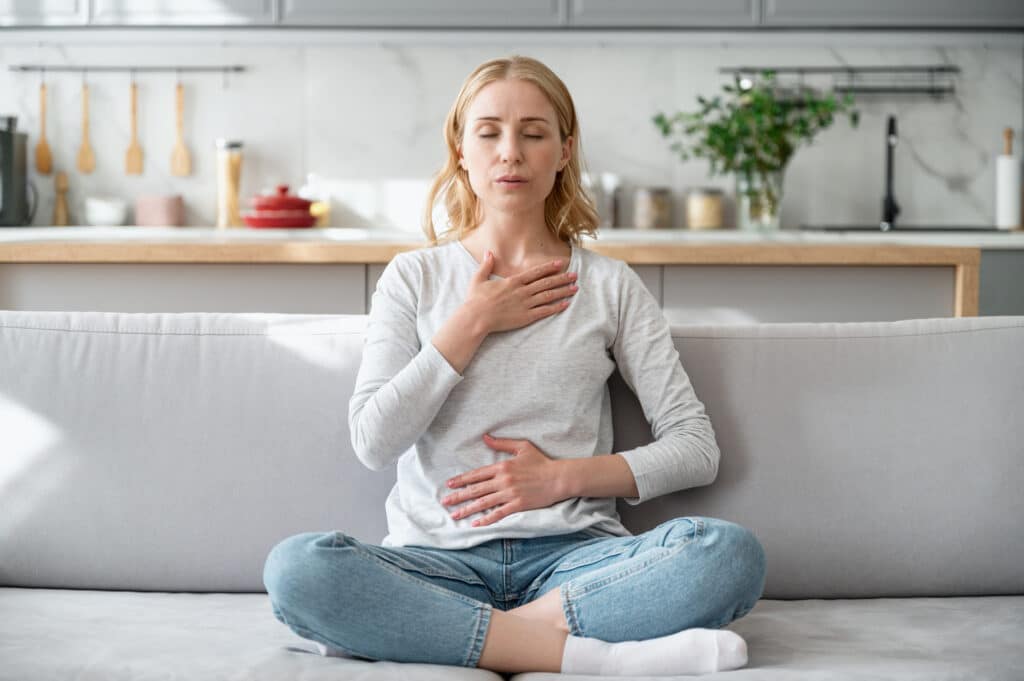
1. Coping with Anxiety Basics: Sleep, Nutrition, and Movement
It may sound simple, but the foundation of emotional well-being starts with your body. If you’re not eating regularly, skipping sleep, or staying inside all day, your body is going to feel it, and so is your mind.
- Sleep: Try to get 7–9 hours each night. Lack of sleep makes anxiety worse.
- Nutrition: Skipping meals or eating lots of sugar and processed food can cause mood swings and fatigue. Aim for balanced meals throughout the day.
- Exercise: Even light movement like walking, stretching, or yoga can reduce anxious feelings by releasing endorphins and lowering stress hormones.
When your physical needs are met, your mind has a much better chance of coping with stress and anxiety in healthy ways.
2. Practice Mindful Breathing
When you’re feeling anxious, your breathing often becomes shallow and fast. This tells your brain that something is wrong, even if you’re not in any danger.
One of the fastest ways to calm your nervous system is to slow your breath.
Try this simple exercise:
- Inhale slowly through your nose for 4 seconds.
- Hold your breath for 4 seconds.
- Exhale gently through your mouth for 6 seconds.
- Repeat for a few minutes.
Doing this a few times a day can reduce anxiety and help your body feel safe again. It’s one of the easiest anxiety coping mechanisms to practice anywhere, anytime.
3. Identify and Track Your Triggers
Everyone’s anxiety looks a little different. Learning what sets yours off can help you prepare and respond instead of react.
Try keeping a journal or notes on your phone. Track when you feel anxious, what was happening, and how your body and thoughts responded.
Over time, patterns may emerge. Maybe crowded spaces, tight deadlines, or social media are big triggers.
Recognizing them is the first step to managing them.
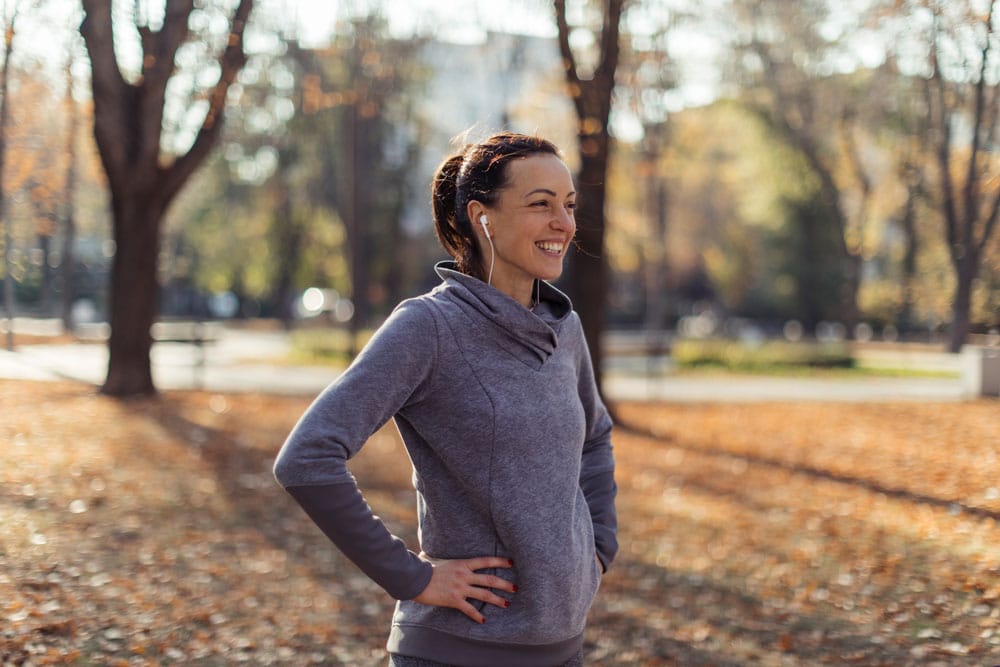
4. Get Outside and Connect With Nature
Spending time outdoors can ease anxious thoughts and boost your mood. Sunlight helps increase serotonin, a natural mood stabilizer. Even a few minutes outside can help you feel more grounded and connected.
Go for a short walk, sit on your porch, or find a local park. Listen to the birds, feel the air on your skin, or look up at the sky. Nature has a calming effect that works even if you’re not in a remote forest or mountain range.
5. Set Boundaries With Social Media and Screens
It’s no secret that too much screen time, especially on social media, can make anxiety worse. Seeing constant news updates, filtered lives, or endless opinions can leave your brain on high alert.
Try limiting screen time during certain parts of the day, like mornings or right before bed. You don’t have to delete everything, but consider logging out of apps or turning off notifications. Even short breaks from your phone can make a big difference in how you feel.
6. Use Grounding Techniques to Cope with Anxiety
When anxiety feels like it’s taking over, grounding techniques can bring you back to the present moment. These simple exercises shift your focus away from racing thoughts and into the here and now.
Try the 5-4-3-2-1 technique:
- Name 5 things you can see
- Name 4 things you can touch
- Name 3 things you can hear
- Name 2 things you can smell
- Name 1 thing you can taste
This is a fast, effective anxiety coping mechanism you can use anytime, anywhere.
7. Talk to Someone You Trust
You don’t have to carry anxiety alone. Whether it’s a friend, family member, support group, or therapist, opening up about how you’re feeling can take away some of its power.
If you’re supporting someone with anxiety, let them know you’re there without trying to “fix” them. Just listening without judgment is one of the most powerful things you can do.
8. Try a Creative Outlet
Anxiety often traps energy in your body and mind. Releasing it through creativity can be a healthy outlet. You don’t have to be an artist or musician, just try something expressive.
Drawing, writing, dancing, painting, gardening, or even coloring in an adult coloring book can help shift your attention from stress to something soothing and enjoyable.
9. Create a Calm Routine
Anxiety thrives on unpredictability. Creating small routines during your day can help you feel more in control. That might mean setting a consistent wake-up and bedtime, having a go-to morning ritual, or winding down the same way each night.
Even small habits can add a sense of safety and predictability that your brain finds comforting.
You Don’t Have to Do It All at Once
Learning how to cope with anxiety is a journey, not a race. You don’t have to use every coping strategy all at once. Try starting with just one or two that feel doable today. Over time, small changes can add up to big improvements in how you feel.
But if anxiety is interfering with your daily life, like it’s affecting your work, relationships, or overall well-being, it may be time to seek professional support. That’s not a sign of weakness. It’s a brave and healthy step toward feeling better.
The Meadows Is Here to Help
At The Meadows, we understand how overwhelming anxiety can be. Whether you’re facing daily worry, panic attacks, or anxiety tied to trauma or stress, we offer compassionate, research-based treatment that gets to the root of the problem.
You don’t have to struggle in silence. Our expert team will work with you to build a personalized plan for healing. Our treatment plans have helped thousands of people learn how to manage anxiety and live with greater peace, and we’re here for you, too.
If anxiety is holding you back, reach out today. Help is just a call away.
More FAQs When Coping With Anxiety
What is the 3-3-3 rule for anxiety?
The 3-3-3 rule is a grounding technique that helps calm anxiety by bringing your focus to the present moment. You name 3 things you see, 3 things you hear, and move 3 parts of your body.
What causes constant anxiety?
Constant anxiety can be caused by a mix of factors, including genetics, past trauma, chronic stress, medical conditions, or imbalances in brain chemistry. It can also be worsened by poor sleep, diet, or high levels of daily pressure.
What are the 4 Cs of anxiety?
The 4 Cs of anxiety are Control, Competence, Confidence, and Connection. These represent key areas where anxiety may develop and where coping strategies can help restore balance and calm.
What are the signs you have anxiety?
Common signs of anxiety include constant worry, trouble sleeping, restlessness, difficulty concentrating, and physical symptoms like a racing heart or tight chest. If these symptoms persist, it may be time to seek support.
How do I turn off fight or flight?
To calm your fight-or-flight response, try deep breathing, grounding exercises, or physical activity like walking. These techniques help signal to your brain that you are safe, allowing your nervous system to relax.
